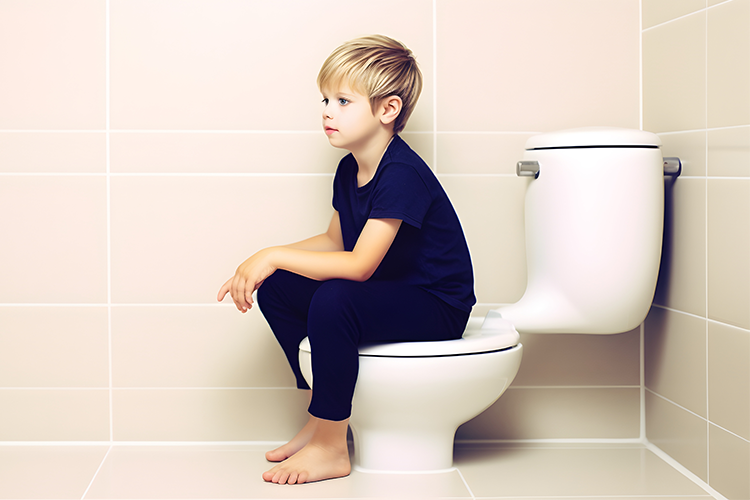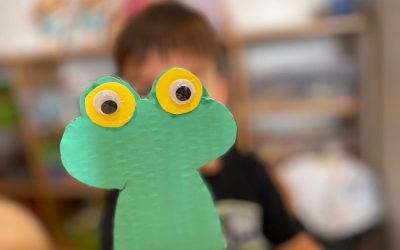Causes of Stool Withholding Behavior
This behavior may arise due to biological or psychologist/emotinal factors, or a combination of these elements.
a. Physical Causes:
Constipation: Constipation is one of the most common biological causes of stool withholding behavior. Insufficient fiber intake, low water consumption, and lack of physical activity can slow down bowel movements. This can cause stool to harden in the intestines, making it more difficult to pass.
Bowel Desensitization: Consistently withholding stool can lead to accumulation in the intestines and a gradual loss of normal bowel muscle function. Over time, this may result in the child not feeling the urge to defecate.
Reduced Bowel Movements: Medical conditions or disorders affecting bowel functions can cause stool accumulation and lead to stool withholding behavior.
b. Psychological Causes:
Psychological factors are the most common causes of stool withholding behavior and are closely related to the child’s emotional state.
- Psychodynamic and psychoanalytic theories focus on the early developmental stages and the challenges experienced during these periods. According to Sigmund Freud’s psychosexual development theory, the ages of 1–3 are referred to as the anal stage. In this stage, the child develops a sense of control over retaining and releasing stool. Being understanding, compassionate, and patient with the child during this process will be effective in preventing the behavior from turning into a power struggle.
- In Erik Erikson’s developmental theory, the anal stage is described as a period of conflict between autonomy and shame/doubt. During this stage, the child seeks independence and autonomy. It is important to avoid controlling attitudes or those that the child might associate with punishment in order to prevent entering a power struggle with the child.
- Life events such as the birth of a sibling, parental separation, moving to a new home, or changing schools can be challenging for children to adapt to, leading to feelings of insecurity. Stool withholding may emerge as a coping mechanism in such situations.
- Fear of using the toilet—due to factors such as darkness, noise, or unfamiliarity—or perceiving defecation as dirty or shameful can also cause the child to develop this behavior.
- For children with a heightened sensitivity to cleanliness and hygiene, defecation may be perceived as disgusting, leading them to withhold stool or avoid defecating in places they do not consider clean. In such cases, the family’s attitudes and behaviors regarding hygiene and cleanliness may play a significant role.
Management and Support Strategies for Parents
- Use encouraging and positive language to emphasize that defecation is a natural need.
- Adopt a calm and empathetic communication style to understand the child’s fears and concerns.
- Incorporate fun stories and games into the toileting process to create a positive experience.
- Respond to stool accidents with calmness and support.
- Explain why withholding stool is problematic using age-appropriate and concrete terms that the child can understand.
- Practice patience and maintain a calm attitude during toilet training.




